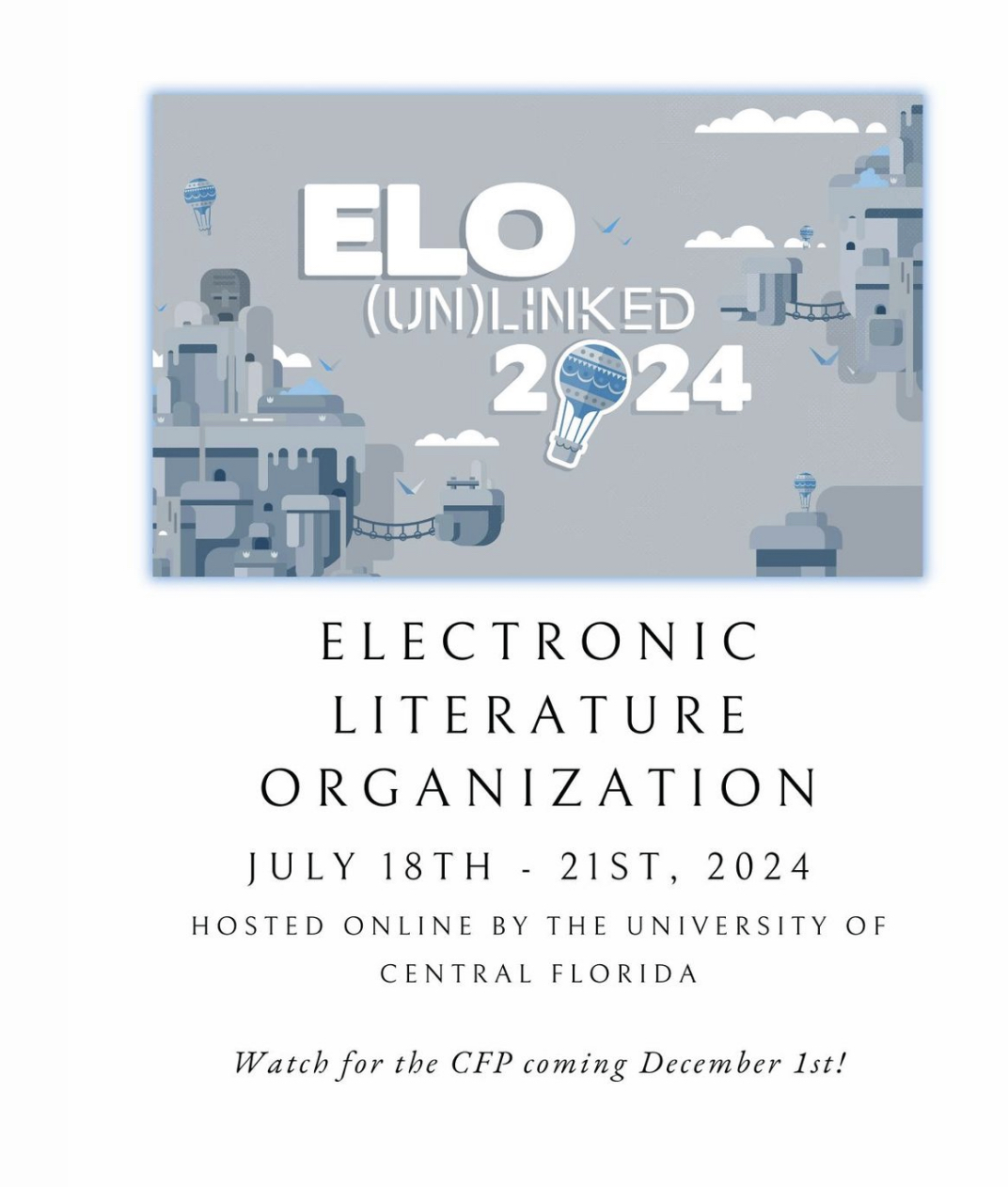Conference
-
2025 ELO Awards
ELO is excited to announce the winners of the 2025 Electronic Literature Awards. These awards were coordinated by. Alinta Krauth and Jason Nelson. ELO gives 4 juried awards that come… Read more.
·
-
Jean-Pierre Balpe Conference program now online
The full program of the conference titled “Jean-Pierre Balpe, (Meta-)Author: The Infinite Writing” is now online on the conference website, along with practical information: https://balpe2025.sciencesconf.org/resource/page/id/1 The conference will take place… Read more.
·
-
Conference Celebrating Jean-Pierre Balpe
Jean-Pierre Balpe, (Meta-)Author: The Infinite Writing International Conference 12-13 June 2025 University of Paris 8, Campus Condorcet Jean-Pierre Balpe, one of the first authors and theorists in France to take an interest… Read more.
·
-
CFP: ELO25 @ 25: Toronto (July 11-13; ext deadline Jan. 15, 2025)
Organizers: Caitlin Fisher (York) and Lai-Tze Fan (Waterloo) Locations: Toronto, Canada and Waterloo, Canada For its 25th anniversary, Electronic Literature Organization (ELO) is holding an international in-person conference and media… Read more.
·
-
Announcing the 2024 ELO Awards
(from coordinators Jason Nelson and Alinta Krauth) We are very excited to say the ELO Awards have just been announced at this year’s conference. We will be posting the judges… Read more.
·
-
CALL FOR NOMINATIONS: 2024 ELO AWARDS
The Electronic Literature Organization is proud to offer the following four prestigious awards: The Robert Coover Award for a Work of Electronic Literature, The N. Katherine Hayles Award for Criticism… Read more.
·
-
Register for the ELO UnConference (Jan 18-19, 2024)
ELO Conference: Access Works January 18-19, 2024 online Please join in on our (Un)conference, Access Works! Two days of informal, interactive discussions and workshops to find ways to extend access… Read more.
·
-
CFP: ELO 2024 (Feb 15; July 18-21, 2024)
Electronic Literature Organization (ELO) Conference and Media Festival 2024 – Virtual – Call for Proposals – #ELOnline SUBMIT NOW! We invite submissions for presentations, performances, and exhibition pieces at the annual Electronic Literature Organization… Read more.
·
-
Save the Date: The ELO 2024 Main Conference is coming!
We’re excited to announce that this year’s Electronic Literature Organization Conference will be fully online July 18-21 2024, hosted by UCF and colleagues from around the world. Our team is… Read more.
-
CALL FOR NOMINATIONS: ELO AWARDS
The Electronic Literature Organization is proud to offer the following four prestigious awards: The Robert Coover Award for a Work of Electronic Literature, The N. Katherine Hayles Award for Criticism… Read more.

